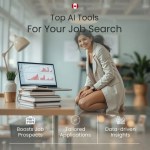The tech hiring landscape is undergoing its most dramatic transformation in decades. By 2025, 65% of hiring processes will look fundamentally different from today’s standards (Gartner 2024). From AI-powered interviews to skills-based hiring revolutions, job seekers must adapt or risk becoming obsolete.
This 1,800-word deep dive reveals the seven most critical hiring trends that will dominate 2025, with actionable strategies to help you stay ahead of the competition.
Table of Contents
- 1. The Death of Traditional Resumes (And Rise of Skills-Based Hiring)
- 2. AI Interviewers: The New Gatekeepers
- 3. The Global Talent Pool Explosion
- 4. Continuous Credentialing Becomes Mandatory
- 5. The Rise of the “Test Drive” Hiring Model
- 6. Diversity Hiring Goes Hyper-Targeted
- 7. Compensation Transparency Reshapes Negotiations
- Actionable Checklist for 2025 Job Seekers
- Looking Ahead
1. The Death of Traditional Resumes (And Rise of Skills-Based Hiring)
Why It’s Happening:
- 72% of tech employers now prioritize demonstrable skills over degrees (LinkedIn 2024 Talent Report)
- AI resume screeners reject 90% of traditional CVs within seconds
What Winners Are Doing:
- Building interactive portfolios (GitHub+Notion combos)
- Creating 1-minute video pitches (adopted by 40% of FAANG companies)
- Using standardized skills profiles like:

Case Study: A bootcamp grad landed a $160K Google role by replacing his resume with a live coding environment showing 10 real-world projects.
2. AI Interviewers: The New Gatekeepers
The New Reality:
- 55% of first-round interviews now conducted by AI (HireVue 2024 data)
- Tools like Pymetrics and HireEZ analyze:
- Micro-expressions
- Speech patterns
- Problem-solving approaches
How to Prepare:
- Practice with AI mock interview platforms:
- Master the STAR-AR format (Situation, Task, Action, Result, AI Reflection)
- Wear high-contrast clothing for better AI visual analysis

Pro Tip: Some candidates are gaming the system by:
- Using optimal lighting setups
- Mirroring speech patterns from successful interviews
- Pausing strategically to show “thoughtfulness”
3. The Global Talent Pool Explosion
Key Statistics:
| Trend | Impact |
|---|---|
| Remote-first hiring | 83% of tech roles now location-agnostic |
| Digital nomad visas | 45 countries offering tech-specific visas |
| Salary normalization | 60% pay gap between US/global workers closing |
Top Destinations for Tech Talent:
- Portugal (Tech Visa program)
- Dubai (Virtual Working Program)
- Estonia (Digital Nomad Visa)

Strategy: Build a timezone-agnostic personal brand by:
- Contributing to global open-source projects
- Creating content for multiple regions (e.g., tutorials in English and Mandarin)
- Highlighting cross-cultural collaboration experience
4. Continuous Credentialing Becomes Mandatory
The New Credential Economy:
- Micro-certifications now outweigh degrees:
- AWS certifications = 28% higher callback rate
- Google Cloud certs = $18K average salary bump
- Blockchain-verified credentials gaining traction
Top 5 Valuable Certs for 2025:
- NVIDIA AI Certification
- Certified Kubernetes Security Specialist (CKS)
- Google Cloud Machine Learning Engineer
- Blockchain Council’s Web3 Developer
- MIT’s AI Privacy and Ethics Certificate

Smart Play: Create a living credential dashboard using:
- Credly for digital badges
- GitHub Profile README for real-time updates
5. The Rise of the “Test Drive” Hiring Model
How It Works:
- Paid trial projects replace technical interviews
- 30-day contract-to-hire becomes standard
- Platforms enabling this shift:
Candidate Advantage:
- Earn while interviewing
- Showcase real skills vs. interview performance
- Negotiate from stronger position
Case Study: A senior dev increased her offer by $45K after acing a 2-week paid trial at Stripe.
6. Diversity Hiring Goes Hyper-Targeted
New Initiatives:
- Neurodiversity programs (Microsoft Autism Hiring)
- Age-specific pipelines (IBM’s New Collar)
- Geo-based quotas (Africa Tech Talent Initiative)
How to Leverage:
- Highlight unique perspectives
- Target specialized job boards:
- PowerToFly (Women in Tech)
- Diversify Tech (Underrepresented groups)

7. Compensation Transparency Reshapes Negotiations
The New Rules:
- Salary ranges now legally required in 15+ states/countries
- Equity calculators standard in offer letters
- Benefits marketplaces let you customize packages
Must-Use Tools:
- Levels.fyi for real-time comp data
- Option Impact for equity valuation
- Pave for total comp analysis
Actionable Checklist for 2025 Job Seekers
- [ ] Convert resume to skills-first format
- [ ] Complete 3 micro-certifications
- [ ] Build public work portfolio
- [ ] Practice with AI interview simulators
- [ ] Research global salary benchmarks
- [ ] Identify 2-3 specialized hiring programs
- [ ] Set up compensation tracking alerts
Looking Ahead
The tech hiring revolution shows no signs of slowing. As one Google hiring manager told me: “The candidates succeeding in 2025 aren’t just technically skilled—they’re adaptation experts.”
✅ Frequently Asked Questions (FAQs)

1. Are resumes no longer relevant in 2025?
Traditional resumes are rapidly declining in relevance. Employers now prioritize skill-based portfolios, verified micro-certifications, and interactive profiles like GitHub or Notion over traditional CVs.
2. How do I prepare for AI-led interviews?
Use platforms like Interviewing.io and Metaview.ai to simulate AI interviews. Practice concise storytelling, use clear visual presentation, and optimize your speech patterns for clarity.
3. What are the most valuable certifications to get in 2025?
Top micro-credentials include:
- NVIDIA AI Certification
- Google Cloud ML Engineer
- Certified Kubernetes Security Specialist (CKS)
- Blockchain Council Web3 Developer
- MIT AI Privacy & Ethics Certificate
4. What is the “test drive” hiring model?
It replaces interviews with short-term paid trial projects (usually 2–4 weeks) to evaluate real-world skills. Platforms like CodeSubmit and VanHack help facilitate this.
5. Where can I find specialized job boards for diverse candidates?
Try PowerToFly (for women and marginalized groups in tech), Diversify Tech, and targeted hiring initiatives by companies like Microsoft and IBM.



